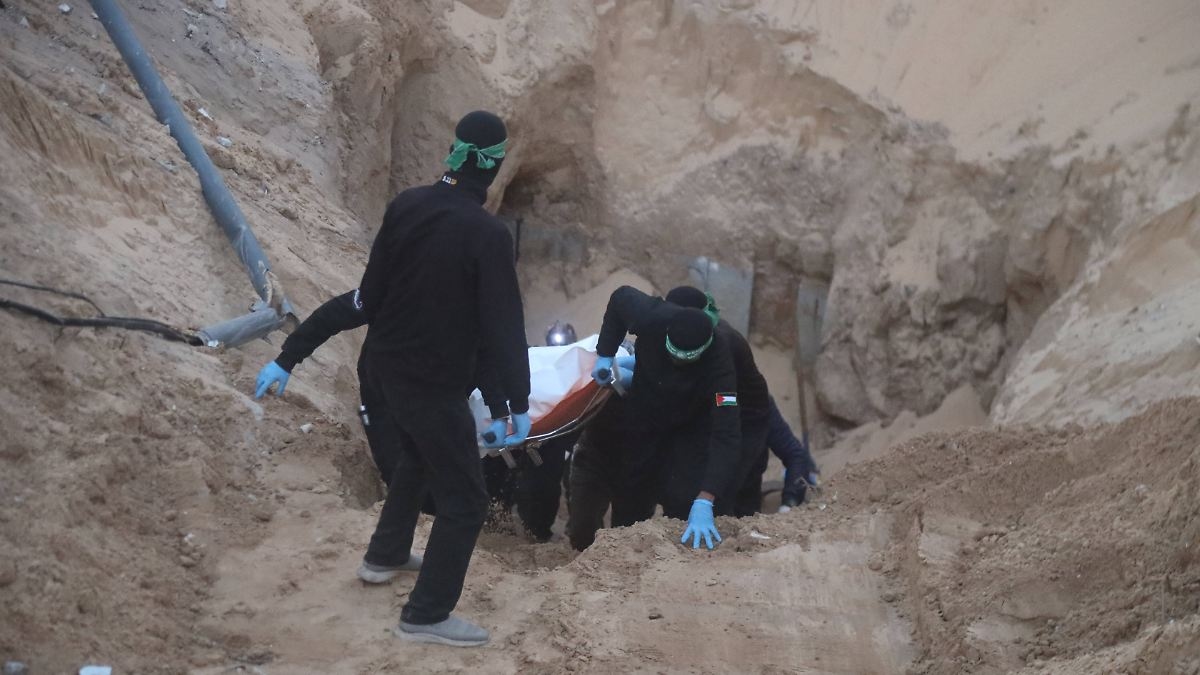Gunfire, burning barricades, drone attacks: The operation against the Red Command in the favelas of the coastal metropolis leads to civil war-like conditions.

At least 64 people were killed in hours-long gun battles between security forces and criminals in Rio de Janeiro. Special forces of the criminal and military police deployed in force in a major operation against the Comando Vermelho (Red Commando) crime syndicate in the Alemão favela and the Penha district in the north of the Brazilian coastal metropolis. 81 suspected gang members were arrested, according to the governor of the state of Rio de Janeiro, Cláudio Castro.
According to media reports, the operation was the bloodiest police operation in the history of the state of Rio de Janeiro. "We are acting together with all our strength to make it clear that power lies with the state," Castro said at a press conference at the security forces' command center. "We will resolutely continue the fight against organized crime."
Comando Vermelho is involved in drug traffickingThe Comando Vermelho is one of the largest crime syndicates in the South American country and is primarily active in drug trafficking. According to authorities, a regional leader of the group and the financial director of one of the gang's top bosses were arrested during the operation. Police also seized over 90 automatic weapons and more than 200 kilograms of drugs.
At least 2,500 police officers were involved in the operation, which also involved two helicopters and dozens of armored vehicles. Criminals set fire to barricades and cars, dropped explosives from drones, and opened fire on officers. Four police officers were killed in the operation, and nine others were shot. Three civilians were also caught in the crossfire.
Videos showed black clouds of smoke rising over the neighborhoods. During one of the most intense phases of the fighting, over 200 shots ripped through the favela in a single minute. Black-clad police in riot gear stormed through the narrow alleys of the slums, assault rifles at the ready.
The civil war-like conditions also impacted city life. Over 100 bus lines had to change their routes due to the fighting. Several universities and schools canceled classes. Approximately 280,000 people live in the affected districts. "This is the reality. We deeply regret that people were injured, but this is a necessary, intelligently planned measure that will continue," Rio de Janeiro's Security Minister, Victor Santos, told TV Globo.
Brazil's police kill 17 people a dayHardly any other country in the world has as many deaths in police operations as Brazil. In 2024, security forces in the South American country killed 6,243 people—an average of 17 per day, according to the Public Safety Yearbook. In the United States, police officers were responsible for the deaths of 1,378 people last year, and in Germany, 22 people were shot and killed by officers.
However, police operations in Europe cannot be compared to those in Brazil: Many slums are controlled by heavily armed drug gangs. When police enter the favelas to execute an arrest warrant or search for drugs, they are often met with volleys of assault rifle fire. The operations in the winding alleys of the slums of Rio de Janeiro and São Paulo are more like military operations than police actions. Human rights activists, however, accuse the police of often using excessive force and showing little consideration for the favelas' residents.
Human rights activists criticize bloody operationThe United Nations Human Rights Commission called for an investigation into the bloody police operation in Rio de Janeiro. "We are appalled by the police operations in the favelas of Rio de Janeiro, which have reportedly claimed the lives of over 60 people, including four police officers," it said in a statement. "They continue a trend of extremely lethal operations in Brazil's marginalized communities. We remind the authorities of their obligations under international law and call for a prompt investigation."
The human rights organization Amnesty International also criticized the operation. "Public safety is not achieved with blood," the group said in a statement. "The operation, which resulted in the highest number of deaths in Rio de Janeiro's history, reveals the failure of the state's security policy and plunges the city into a state of terror."
ad-hoc-news





